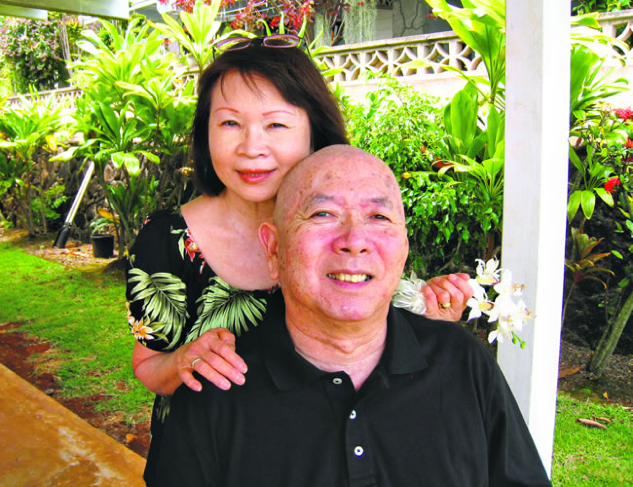Need For Blood Is High In Summer
By Laurie Chang, director of communications, Blood Bank of Hawaii
You may not have ever needed blood, but chances are you know someone who did – a loved one, a friend, coworker or neighbor.
That person got a second chance at life because of a blood donor’s act of kindness.
Bobby and Sharon Kawakami
Bobby Kawakami knows there is nothing small about each drop of the 50 pints of blood he received after he was hit by a car while riding his bike to work in 2009.
Now a paraplegic, Bobby continues to pedal his way back to a normal, healthy life with his trademark smile.
He is keenly aware that blood can’t be bought at the mall or grown on a farm.
It comes from only one source – volunteer blood donors like you.
Every day in Hawaii, hundreds of patients like Bobby count on blood donors for their survival. Because each donation separates into three components – red blood cells, platelets and plasma – a single donation can save three lives.
While 60 percent of people will need blood in their lifetime, only 2 percent of Hawaii’s adult population donates. Summer months and holidays find even fewer donors, with students on break and families taking vacations.
The need for blood, however, never takes a vacation.
Each day, Blood Bank of Hawaii (BBH) staff work hard to collect 200 pints to fulfill its mission: maintaining a safe and adequate blood supply for Hawaii’s patients. Today, BBH’s two donor locations – Dillingham and Young Street Donor Centers – and mobile fleet of bloodmobiles and vans make donations convenient and easy.
By donating blood, you’ll help ensure blood is available for all who need it, perhaps even a loved one or friend.
For more information about donating blood and BBH, visit bbh.org.
Call 848-4770 today for an appointment. Give blood.
It’s safe.
It’s simple.
It saves lives.






